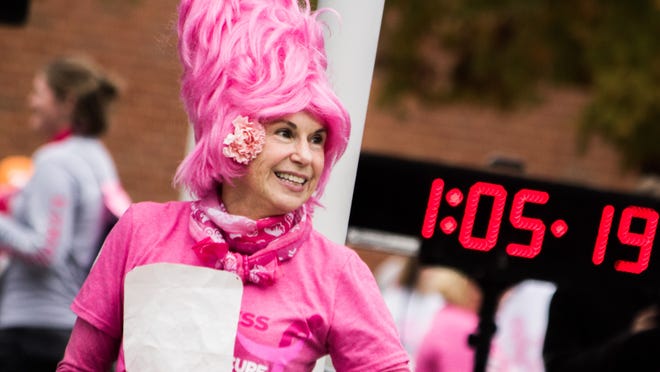An influential task force just updated guidance on breast cancer screenings for at-risk women. They recommended every-other-year mammograms starting at age 40, a decade earlier than previous guidance.
Screenings and diagnostic measures can be expensive. But under the Affordable Care Act, insurers must pivot to cover screenings starting at 40. And Tennessee has a program to support some women who need screenings as well.
The Tennessee Breast and Cervical Screening Program (TBCSP) helps low-income, underinsured and uninsured women access timely breast and cervical cancer screening and diagnostic services. TBCSP also provides patient navigation services to help patients overcome barriers and get access to care.
Breast cancer can’t be prevented, but early detection increases a patient’s chances of survival.
Who’s eligible for the Tennessee Breast and Cervical Screening Program?
The state outlines several requirements for TBCSP. In addition to being a Tennessee resident, a patient must:
Have in income at or below 250% of Federal Poverty Level (FPL) for family size.
Be uninsured, defined as individuals who have no private health insurance, TennCare or Medicare coverage or have exhausted their annual or lifetime benefits.
Be underinsured, defined as individuals who either do not have coverage for breast or cervical screening or who do not have coverage for diagnosis and treatment of breast or cervical cancer (individuals with health insurance that covers TBCSP services are not considered underinsured even if they state they are unable to pay applicable co- pays and deductibles) Clients with Medicare Part A and not B are considered underinsured.
Meet age requirements for breast and cervical screening (40+).
Meet age requirements for breast or cervical diagnostics (18+).
How to get started
According to the TBCSP website, prospective patients can contact their county health department to schedule an appointment for screening. If you’re not sure you’re eligible, you can take a quiz on the state’s website.
Knox County Health Department: 865-215-5000;
Metropolitan Government of Nashville and Davidson County Health Department: 615-340-5616;
Shelby County Health Department: 901-222-9000.
Other findings from the study
Breast cancer is riddled in disparities.
It’s the second-most common cancer among women and the second-deadliest type of cancer . In 2023, an estimated 43,170 women died of breast cancer. White women have the highest rate of breast cancer. Black women have the highest death rate from breast cancer; they are 40% more likely to die of breast cancer than white women.
A research paper detailing the task force’s recommendation in the Journal of the American Medical Association, or JAMA, noted significant disparities in access to follow-up care and treatment. The study said Black women had a rate of self-reported mammogram screening “similar to or higher than that for all women” but it noted disparities in follow-up and treatment after screening mammograms.
Black women’s rate of triple-negative cancer − a type of breast cancer that is more aggressive and diagnosed at later stages − was twice as high as white women’s, the study said.
To reduce disparities, the task force said, it’s vital that everyone diagnosed with an abnormal mammogram receive equitable follow-up evaluations and testing as well as any recommended biopsies and treatment.
USA TODAY reporter Ken Alltucker contributed to this report.
Allie Feinberg reports on politics for Knox News. Email her: allie.feinberg@knoxnewsws.com and follow her on X, formerly known as Twitter, @alliefeinberg.
Source link







